Founder and Executive Director of Project Alert on Violence Against Women is a women’s rights activist who is breaking the silence surrounding domestic violence in Nigeria. She has received several awards for her doggedness and untiring efforts in the women’s human rights crusade. She graciously granted Growing Up an interview in which she talked about the skills and qualities required for a successful professional career in the development field.
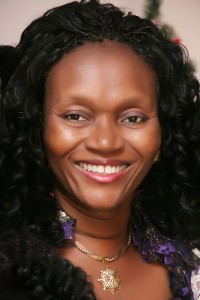 What does your profession entail?
What does your profession entail?
I am a development specialist, dedicated to the area of women and development, which is now called gender and development. Basically, working in this field entails working on development l issues especially as it relates to women and young girls as well as social justice issues.
How did you start your career?
Well, I would say that somehow my becoming a development worker was a stroke of fate because as a young girl I never knew I would eventually go into development work. However, while growing up I had strong opinions about certain social issues, particularly those that had to do with women and young girls. Some of these issues were concerns about culture and traditions that discriminated against women, maltreatment of widows, young girls and women who were in abusive relationships etc.
My concern for these issues created a lot of questions in my young mind. Even when I was in the university, I never ceased to question reasons women and girls were subjected to all the things I was seeing around me. For instance, a roommate of mine goes out on a date with her boyfriend and comes back with a swollen eye; a young lady justifying being beaten by her boyfriend with the explanation that he is only trying to correct her; a neighbor whose husband’s relatives sweep in immediately after his death to take over his property. So, my mind was filled with so many whys.
When I graduated from the University and I started my youth service, I was posted to a media house in Kaduna where I worked as a correspondent. Though my first degree was in English I, became a journalist due to my love for writing. In my first year as a reporter, there was a vacancy for a Woman Editor in the media house where I was working. My Editor at that time seeing that I had a flare for writing, particularly writing on women and girls issues approached me and offered me the position. At first, I was scared because here was I, young – I was just 23 years old – with a lot of fun things on my mind and I was being handed such a serious position. As acting woman editor, I would manage 6 full pages – one page every day, six days in a week.
My response to my editor was that, I would take up the position only if I was given a free hand to discuss any social issue that had to do with women and not just the regular things like fashion, lipstick, gourmet, and the like. That time was the ‘better life for rural women era’ and I felt there were much more pressing issues that needed to be discussed. For example, women in politics, violence against women, issues of reproductive health and rights of women, access to pipe borne water and other development issues. My editor gave me the go ahead. That was how I got into development work and since then there has been no going back. This even informed me taking a Masters in development studies, specializing in women and development, and then international law and social justice.
Can you give us a picture of what your regular day is like?
My regular day starts very early in the morning by 5am because I have to play the role of a wife and a mother with children. When I wake up, I get my children ready for school; attend to my husband – making sure they all have their breakfast. Then I drop my children off at school. From their school, I head to my office. I get to the office by 9am or earlier.
Before getting to the office, I already have my ‘to-do list’ of things I want to do for the day, which typically features activities like meetings, counseling sessions, and trainings. As the day wears on, I tick off things I have done. My to–do list does not rule out other things that could just come up in the course of the day, which I have to attend to. For instance a case might come up that requires that I visit a Police Station on behalf of a woman.
Though this schedule can be tasking at times but it is possible, and this is what I tell a lot of young people particularly girls. Everything is achievable if you put your mind to it, no matter how difficult it appears at first. For me, what I do is not just a job, it is work. There is a difference between work and a job. A job is just something you do just to pay your bills but for me, work involves passion and that is how I work. It is my passion. My work comes into play in everything I do; whether in my life at home, in my relationship with people and anywhere I find myself.
For instance, I went to a PTA meeting in my daughter’s school and there was a parent with some issues with their daughter. Knowing what I do, the school authorities asked if I could spend some time to resolve the issue and even though I did not go there for that purpose, I found myself attending to the family. It was not a problem because what I do is a passion. Apart from my regular work, I do a lot of consultancies on the side like speaking engagements and training. This is as a result of the fact that people are familiar with what I do and are aware of my expertise in this area.
What other qualifications/ skills/ qualities does one need to for a career in development?
In terms of qualification, a person who wants to enter into the development field can come from any field; be it the sciences, arts or social sciences. The most important thing is where your passion lies and what your motivation is. Do you have a passion for development issues? I encourage a lot of young people in secondary school or university not just to think about going to school to study books, instead they should think about enlightenment.
As for qualities and skills required, a genuine interest in what is going on around you is required and you must learn to think outside the box. Taking interest in their environment might be for instance, finding out why a classmate looks sad and what is making him/her so sad. What is happening in the school library, why are young people victims of rape?
In addition, young people need to develop their leadership skills, participate in activities that can improve their exposure to development issues such as debates, school competitions, and school clubs. Even if their interest is in the Internet, it can serve as an opportunity to share information on development issues; not just, gossip about who is dating who, fashion and other trivial matters.
Other qualities a young person needs, is to believe in self, develop entrepreneurial skills and learn to be assertive.
As a young person who wants to go into development work you must not be afraid of taking risk, but calculated risk not suicidal ones. You don’t see problems, you see challenges, because with challenges you are ready to work around it. But when you look at things as problems it means that nothing can be done about a situation.
What do you find challenging about your work?
As a development worker one major challenge you face is creating attitudinal change in people. When you are into development, you are questioning and challenging a lot of things, such as the way things are done or have been done over the years. Of course, if you are doing this you are bound to meet with some resistance from people who feel, “hey we have been doing this thing this way and why should it be done differently”. You also have cultural and traditional challenges and there are also financial challenges, because in as much as ideas rule the world, you can only kick off those ideas when you have the resources to carry them out. This is where your entrepreneurial skills come into play.
What do you find exciting about your work?
The exciting part is the difference you make in peoples’ lives; putting a smile on someone’s face. Another exciting part is seeing an idea that began as a little thought in your mind come alive. You see it growing, people buying into it, and you see it spreading, that breeds excitement and you exclaim, wow! Also, deciding to do something different from the status quo is exciting.
What is the greatest perk about working in this profession?
The perk for me is going to places and without even introducing myself someone would say you are the one that did this, you are the one that did that. Receiving encouraging emails from people I don’t even know is also quite rewarding because I am not known for something negative, neither am I notorious; instead I am popular. Touching lives even without realizing it, for me these are the perks I get from working in this profession.

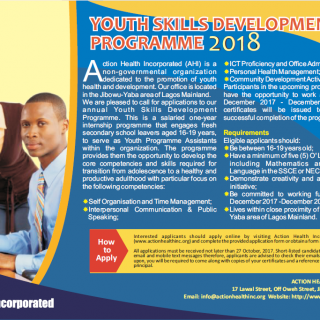


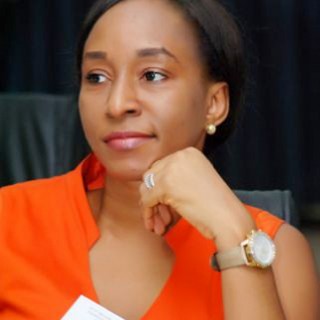
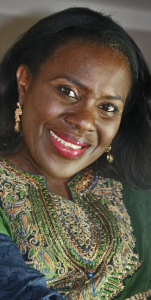
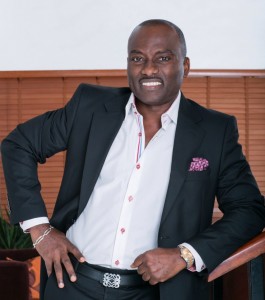
You must be logged in to post a comment.